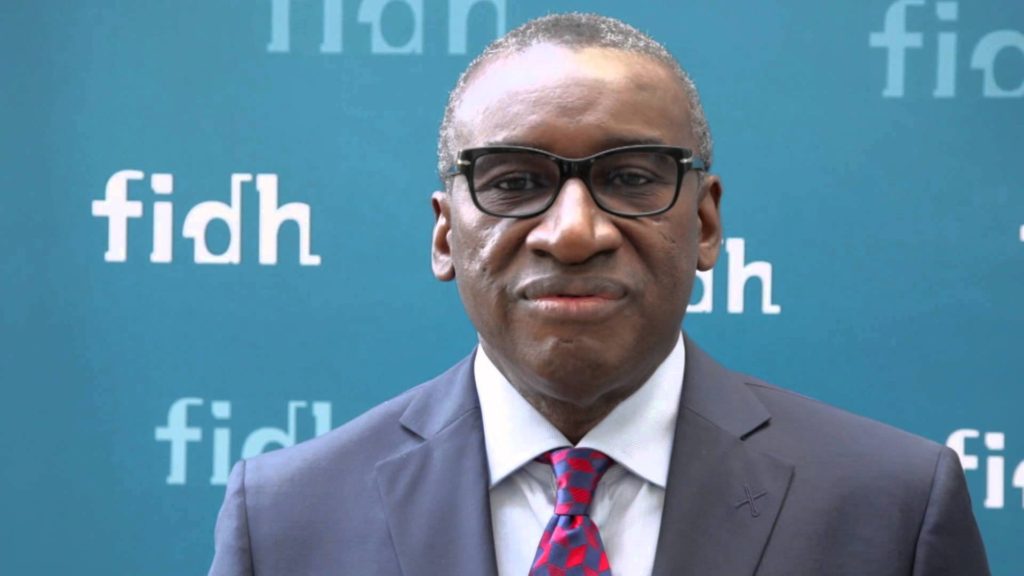 Born in Tambacounda, East Senegal, Sidiki Kaba studied Philosophy, Letters, and Law in Dakar.
Born in Tambacounda, East Senegal, Sidiki Kaba studied Philosophy, Letters, and Law in Dakar.
Passionate about French literature, he admires great universal writers: Montesquieu, for the separation of powers; Victor Hugo, for the defense of the weak; and Albert Camus, for liberties. In their books, he finds out about the importance of fighting, this fight that can change someone’s life.
Sidiki Kaba joins Amnesty International, and then becomes a lawyer in 1980.
In 1987, he is a founding member of the first Organisation for the Defence of Human Rights in Senegal.
This way, he gets in touch with the FIDH (International Federation for Human Rights), which appoints him representative to the African Commission for Human Rights and People (CADHP) in 1990.
Then, Sidiki Kaba extends his action over Africa as a lawyer: he defends Human Rights activists, journalists, opponents, victims of the arbitrariness and repressions, all over French-speaking Africa.
In 1995, he creates the African Centre for the Prevention and Resolution of Conflicts (CAPREC).
Within the FIDH, he gets involved in the emergence of international justice and is part of the funding members for the 1995 coalition, which gathers 2,500 NGOs for the creation of an International Criminal Court (ICC). In 1998, after the settlement of the ICC with the Rome status, it is thanks to his decisive action that Senegal becomes the first country in the world to ratify the text.
In 1999, following to the FIDH involvement against violence to women, he succeeds in making Senegal forbid excision.
Sidiki Kaba becomes in 2001 the first non-European president of the FIDH. This election marked a new step in the globalization of the Federation, which member organizations raised from 116 to 166 over his 6-years mandate.
In 2006, his support to exactions victims of DRC has led to the first ICC judgment.
Since 2013, Sidiki Kaba is the Minister of Justice in Senegal and remains the FIDH President of Honour since 2007.